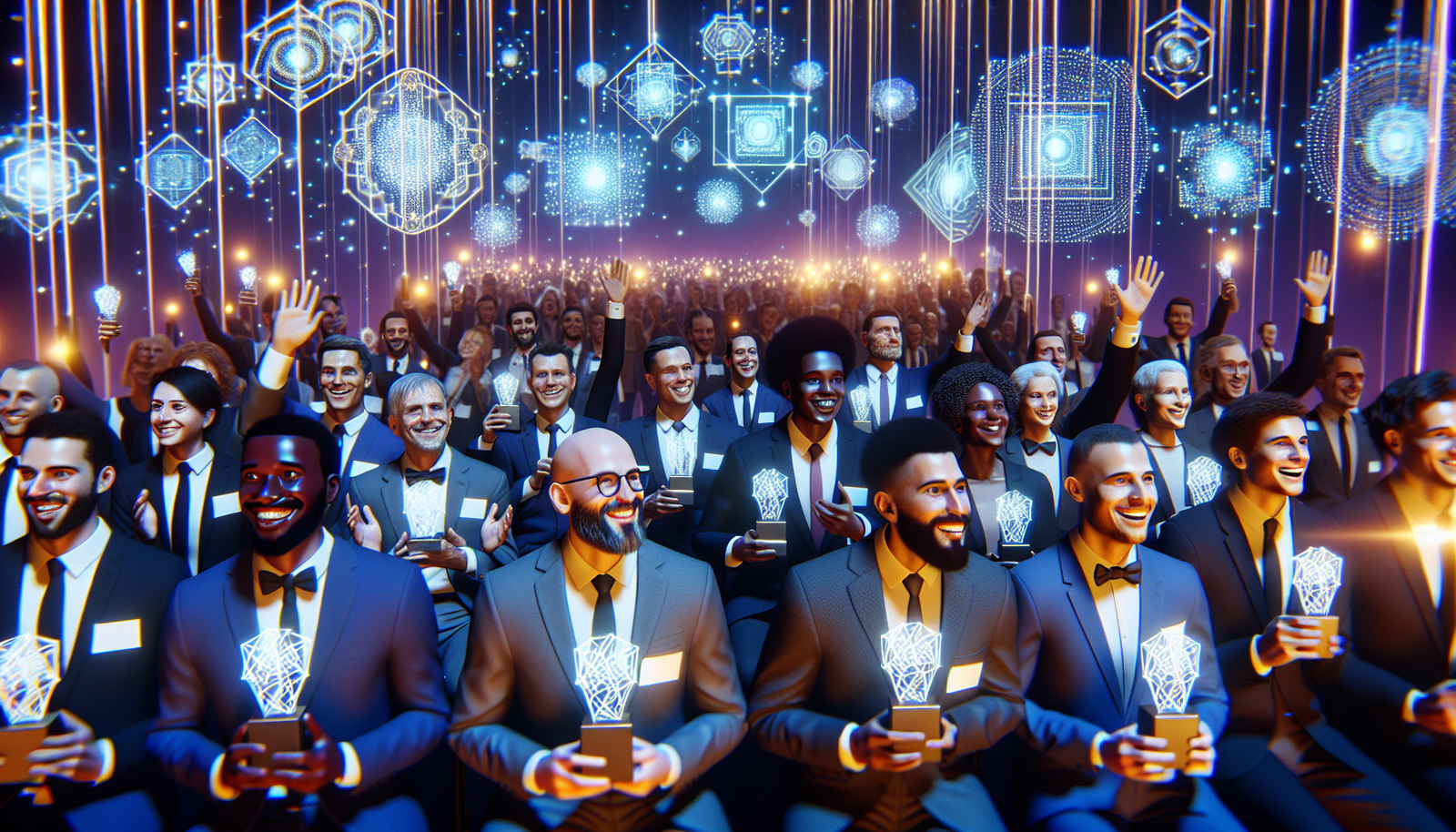The Nobel Prizes in Physics and Chemistry: A Recognition of the Pioneers of Artificial Intelligence
The Nobel Prize in Physics 2024 was awarded to eminent researchers John Hopfield and Geoffrey Hinton for their remarkable contributions to the world of “artificial neural networks.” These awards celebrate not only scientific innovation but also a deeper integration of physics concepts into the field of artificial intelligence.
John Hopfield: A Pioneer of Neural Networks
At 91, John Hopfield remains an iconic figure in the field of applied physics to artificial intelligence. Having formulated the neural networks model that bears his name, his work has paved the way for notable advances in data processing and machine learning. His approach is inspired by physical systems, particularly the behaviors of magnets, thus illustrating the synergy between physics and AI.
Geoffrey Hinton: The Custodian of a Revolution
Geoffrey Hinton, co-recipient of the Nobel Prize, is often referred to as one of the “fathers of artificial intelligence.” His research on deep learning has led to breakthroughs in various fields, from speech recognition to computer vision. His work remains at the heart of digital transformation, influencing technologies that impact people’s lives daily.
A Dynamic Interaction Between Physics and Artificial Intelligence
The decision to honor Hopfield and Hinton reflects a dynamic interaction between two disciplines often perceived as distinct. By drawing inspiration from the behaviors of gases and magnets, their research establishes unprecedented bridges between theoretical physics and AI algorithms. This illustrates the richness of knowledge that emerges from this interconnection.
The Nobel Prizes in Chemistry: New Perspectives on AI
The Nobel Prize in Chemistry 2024 also honored prominent figures in the field of artificial intelligence. Demis Hassabis, John Jumper, and David Baker were recognized for their innovative application of AI in protein design and biomedical research. Their efforts demonstrate how AI can transform biology and address major medical challenges.
Impact and Future of Artificial Intelligence
The Nobel laureates illustrate a continuous innovation within AI, marked by a search for solutions to complex problems. With advancements like GPT-40 from OpenAI, access to artificial intelligence tools is becoming increasingly inclusive, making this technology available to a growing number of researchers and entrepreneurs.
At the same time, the promotion of ethics in AI occupies a central role in the discussions sparked by these awards. The need for balanced regulations and a responsible approach is essential to fully exploit the potential of these technologies while minimizing associated risks.
Frequently Asked Questions
Who are the recipients of the Nobel Prize in Physics 2024 for their contributions to artificial intelligence?
The recipients of the Nobel Prize in Physics 2024 are John Hopfield and Geoffrey Hinton, recognized for their innovative research on artificial neural networks.
What impact have John Hopfield’s works had on artificial intelligence?
John Hopfield is famous for having developed neural network models that have served as the foundation for numerous advances in artificial intelligence, particularly in machine learning.
Why was the Nobel Prize in Chemistry 2024 also awarded to contributors from artificial intelligence?
The Nobel Prize in Chemistry 2024 was awarded to David Baker, Demis Hassabis, and John Jumper for their use of AI in protein design, illustrating the interconnection between these scientific disciplines.
Why are the research awarded by the Nobel Prizes crucial for the future of artificial intelligence?
These research works pave the way for significant advances in artificial intelligence, enabling more complex and efficient applications across various fields, ranging from medicine to technology.
How do the Nobel Prizes reflect the evolution of artificial intelligence over time?
The Nobel Prizes demonstrate how artificial intelligence has evolved from theoretical concepts to practical and innovative applications, reflecting a growing recognition of its scientific importance.
What is the scope of Geoffrey Hinton’s contributions in the field of neural networks?
Geoffrey Hinton is regarded as a pioneer of neural networks due to his work on deep learning algorithms, which have transformed how machines can learn and process data.
What are the ethical implications of advancements in artificial intelligence recognized by these Nobel Prizes?
Advancements in artificial intelligence raise significant ethical questions, particularly regarding accountability, algorithmic bias, and impact on employment, which require careful attention from the scientific community and policymakers.
How do the Nobel discoveries influence future research in AI?
The discoveries of the laureates provide a foundation for future research, inspiring new projects and approaches in the development of artificial intelligence technologies while encouraging innovation.






